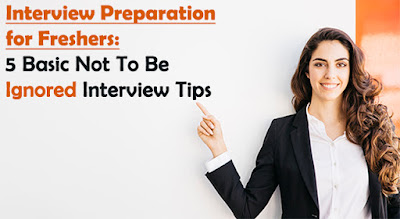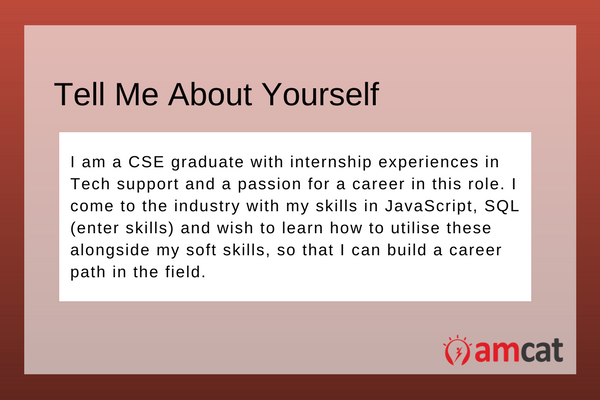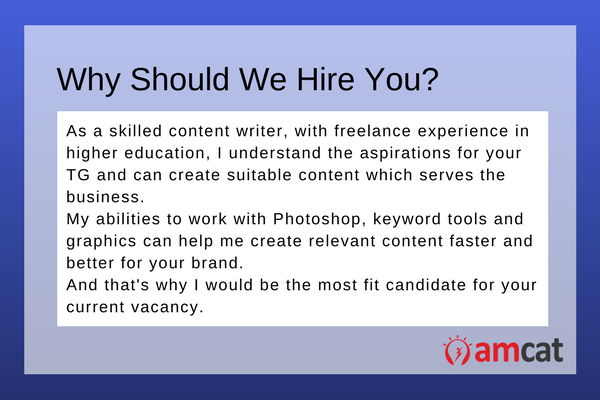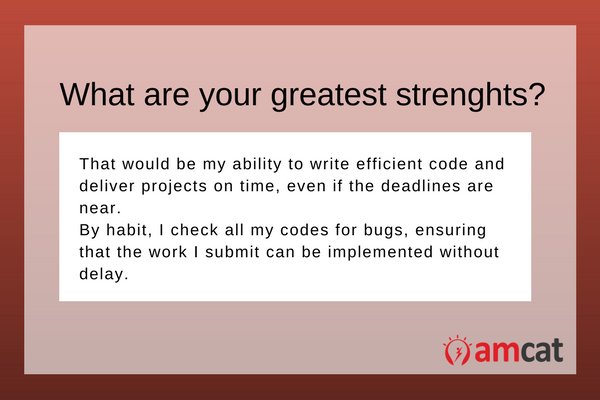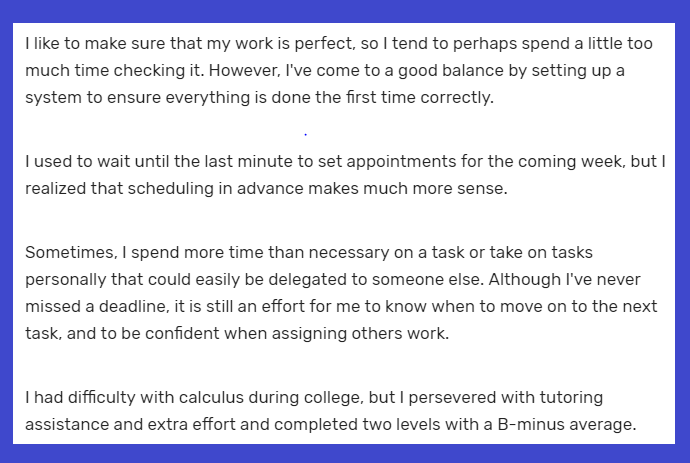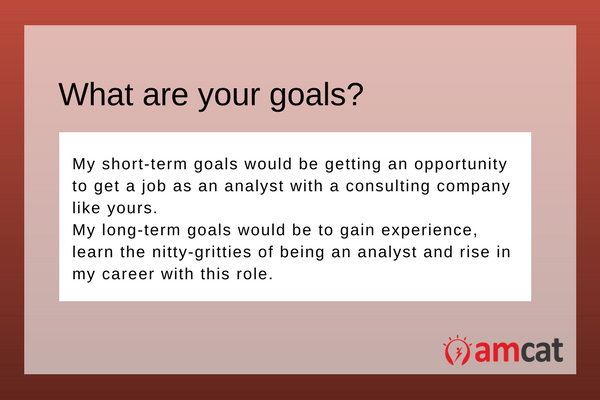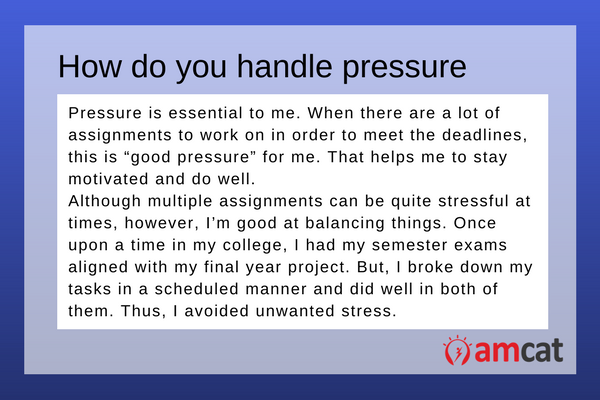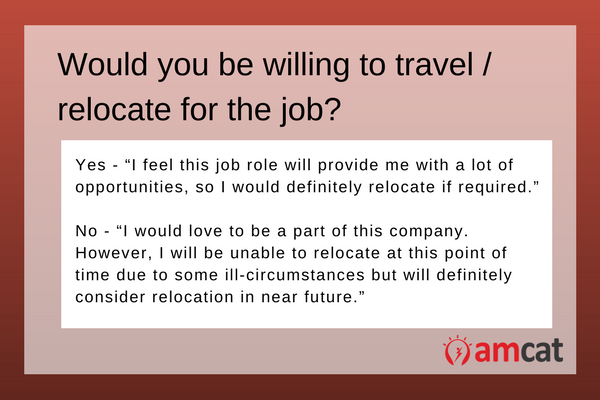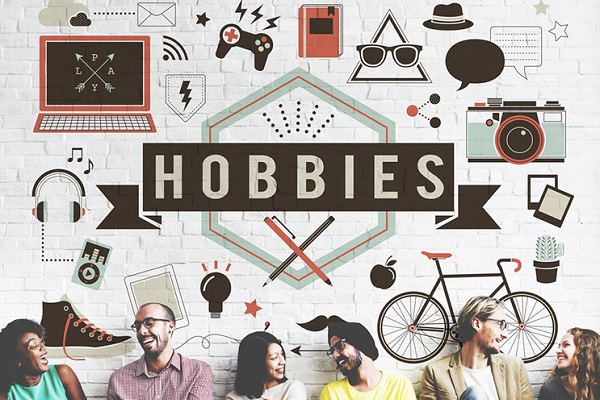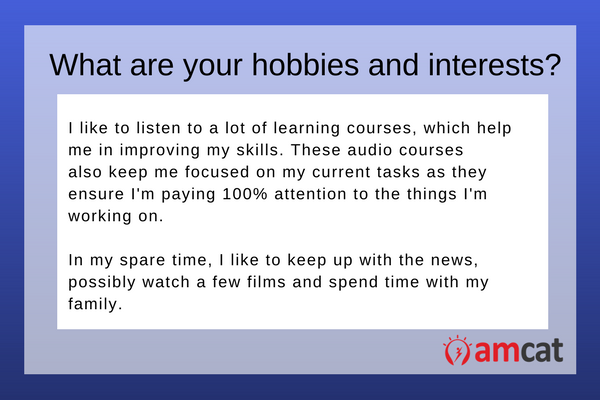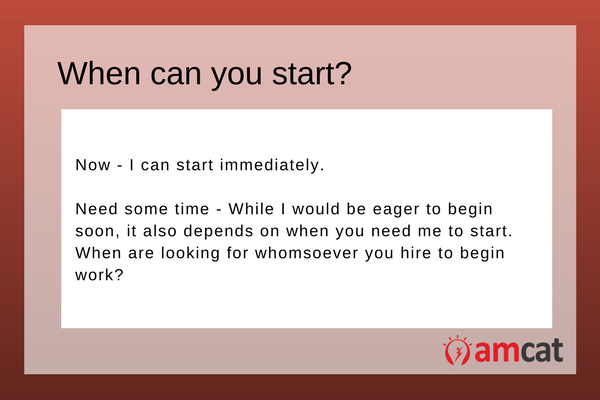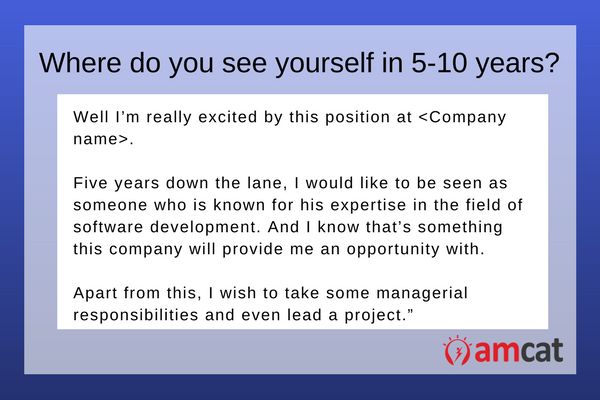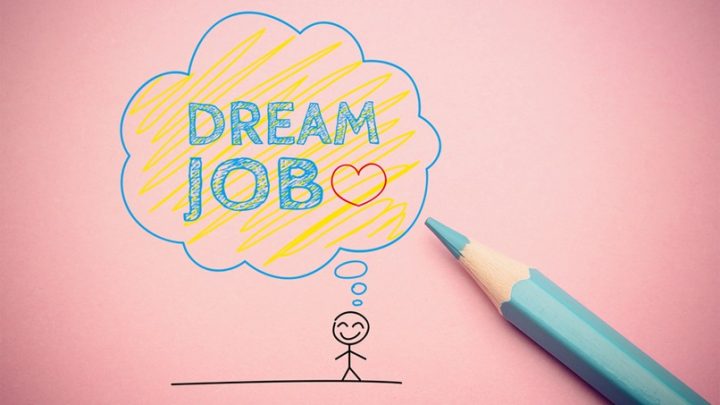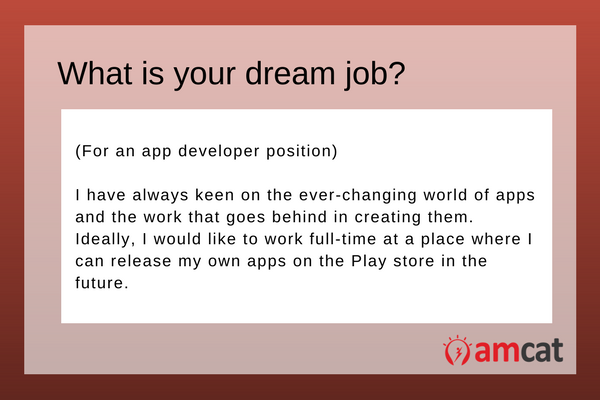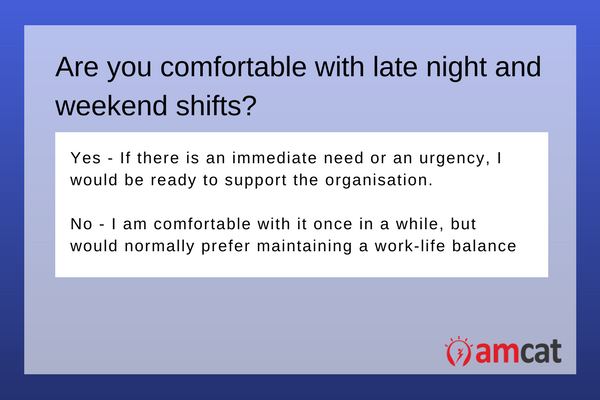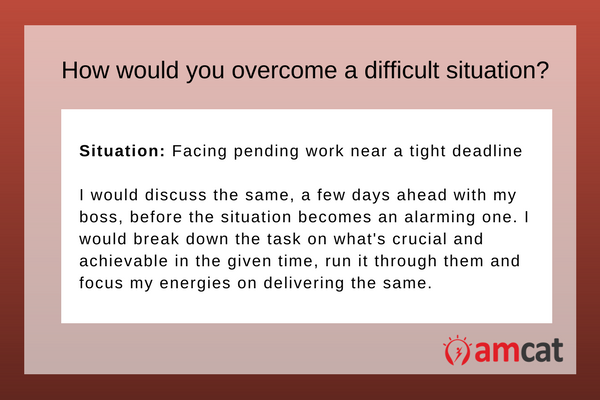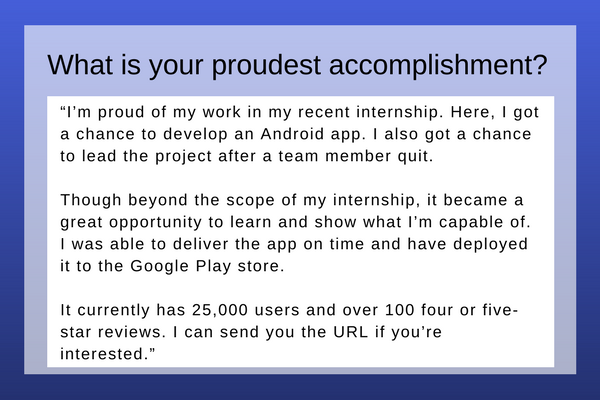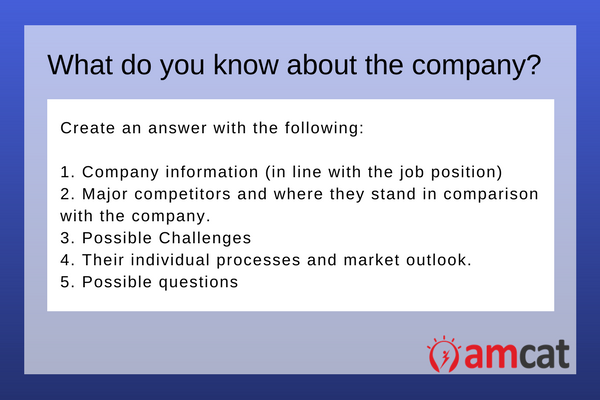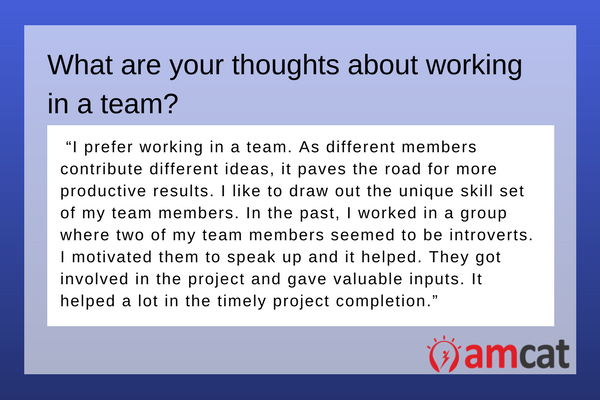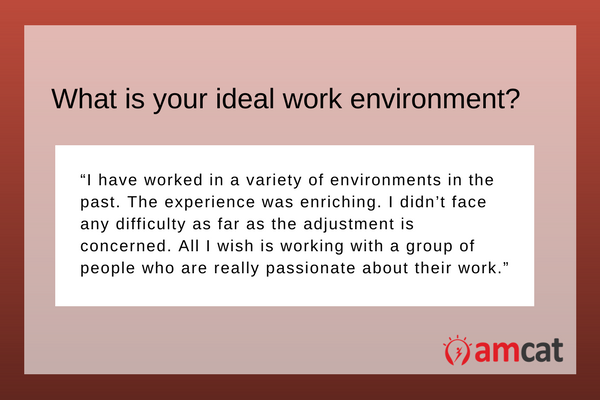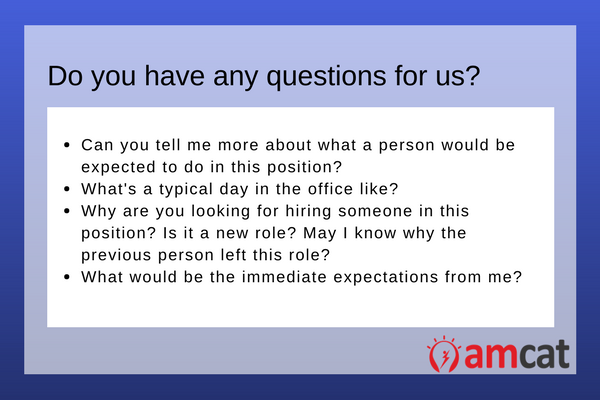We're about to give you the best interview tips on the planet, but first:
You’ve found your dream job. You’ve applied for it. And now they’ve called you back for an interview!
Just one final obstacle stands in your way—you’ve gotta shine at that meeting.
But how to prepare for an interview in a way that will cover all your bases and allow you to walk out of there with a job offer?
Don’t
worry! It’s really not as hard as it seems. With these professional
interview tips and examples, you’ll be on your way to rendering your
interviewer amazed by the time your appointment draws to a close.
By reading this job interview preparation article, you’ll understand:
- How to prepare for a job interview in the most effective way possible.
- Dozens of good interview tips that will allow you to feel confident and poised.
- Important interview rules and things to know before an interview.
- How to do well in an interview so that you get that job offer.
Want to land more job interviews? Create the perfect resume in our builder:
- Pick a professional template.
- Get expert resume tips from recruiters.
- Edit and download your resume in minutes.
Start getting more job offers.
See 20+ resume templates and create your resume.
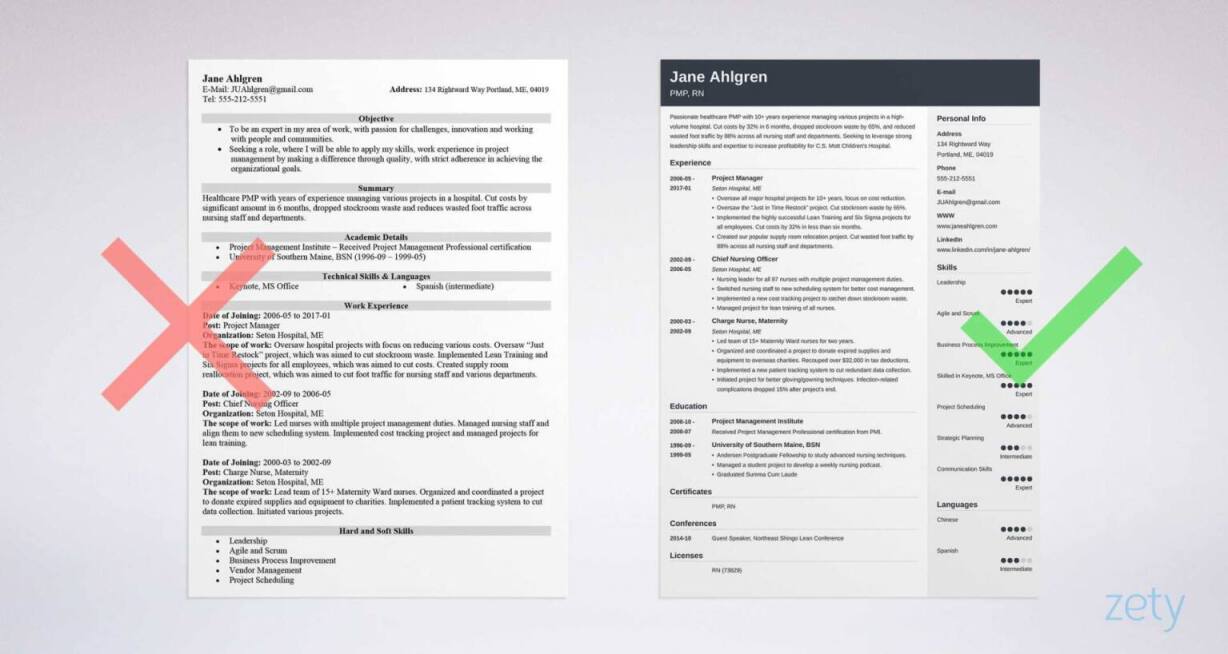
Sample resume made with our builder —
See 20+ templates and create your resume here
Now, here are top interview tips to nail an interview:
1
Prepare for an Interview
There are days and days till your big one. So you can relax until then, right?
Wrong.
You’ve
got to use this time wisely, or else you might as well have just
declined the interview. But don’t worry, here are some of the best
interview preparation tips out there to ensure you are ready to meet
them when they’re ready to see you.
Here are 50 tips on how to prepare for a job interview:
1. Research the Company and Use Their Products
Importance: [⭐⭐⭐⭐⭐]
Just
like they’ll do their due diligence on you, researching the company to
know what they do and how they operate is a must. Also, double-check if
the company’s a match for you.
When you get to that interview,
you’ll be asked about why you want to join and how you can contribute.
Read up on the prospective employer on
Glassdoor, for example.
Researching
the hiring manager who will conduct the interview is much harder. It
happens that you only learn who the interviewer is when you walk into
the meeting. However, if you can, look them up online. You’ll have a way
to make some great, tailored comments and small talk to bond.
Also,
don’t go into an interview without trying out the products or services
that the company offers. You need to prepare for an interview. If they
have a blog, read it. If it’s a restaurant, eat there. If they
manufacture dish soap, make some bubbly foam.
Employers expect you to understand their business, and nothing makes them happier than hiring a fan!
2. Prepare Questions to Ask Them
Importance: [⭐⭐⭐⭐⭐]
Interviews
are not all about them getting to know you. In 2018, you have to speak
up and come at them with your own questions. You’re bound to hear, “Do
you have any questions you’d like to ask?” Don’t give
no as an answer.
What exactly should you ask your interviewer? How about a few of these:
65 Questions to Ask an Interviewer (Examples for Specific Jobs)
3. Be Prepared to Answer Their Questions
Importance: [⭐⭐⭐⭐⭐]
This
is an interview—you’re gonna get questions. While you may not know how
it’ll play out, there are some general questions that are asked in most
interviews. Practice those! We’ll talk about some individual questions
later in this article, or you can see more than 10 interview questions
to prepare for here:
Common Interview Questions and Answers
4. Dictate the Date
Importance: [⭐⭐⭐]
If
you can, try to get your interview to happen in the middle of the week
and earlier in the day. Mondays are notoriously busy with catching up
after the weekends, while Fridays have the negative aspect of a possible
loss of interest in you over the weekend. Aim for earlier interviews,
like an hour before lunch, at least, but not as soon as the office
opens; both you and your interviewer will be less likely to feel hungry,
grouchy, and tired.
5. Get Some Sleep
Importance: [⭐⭐]
You
were probably going to get some sleep anyway, weren’t you? But what I
mean here is an excellent sleep for the full amount of hours—you’ll need
to aim for quality
and quantity. Interviews are often an hour
in length and beyond, so you’ll thank yourself when your brain is able
to fire on all cylinders throughout.
6. Be Alerted With Google Alerts
Importance: [⭐]
One helpful hack many pros suggest is to set up your
Google Alerts
and add monitoring for keywords related to the company(/ies) you’ll be
interviewing with. This will provide you with an email digest of any
mentions of the company so that you can stay as informed as the board
members of what’s happening up to the minute of your interview.
Set
alerts to be “as-it-happens” to ensure that you are afforded all
relevant postings in real time. Add a Google Alert for the company as
well as the managers/partners.
7. Practice to be Perfect
Importance: [⭐⭐⭐⭐]
You may not know exactly what they’re going to ask you, but you do know they’ll ask you
something. Practice the delivery of your speech and improve your compute time by asking a friend to pretend being the interviewer.
Don’t
ask them to read from a list of questions you’ve prepared—an interview
would not go that way. Instead, ask them to come up with how their idea
of an interview would go. To go a step further, try doing it in a public
place, like in a busy cafe, to really get the out-of-your-comfort-zone
feel.
8. Check Your Online Presence and Your Public Social Media Profiles
Importance: [⭐⭐⭐⭐⭐]
Your
social media profiles may have more available to the public than you
realize or care for. Ensure your interviewers don’t get the wrong
picture by removing all negative pictures (and other content) of you,
such as sexually-suggestive pictures, political rants, hangover
complaints, and so on. Read this post to ensure you do it right:
How to Check Your Online Presence Before Recruiters Look You Up
Would you go on a first date without showering and slathering on some deodorant?
No, right?
Well, an interview is like a very important first date. Here are some interview tips on style and what to wear in an interview:
9. Follow the Proper Dress Code
Importance: [⭐⭐⭐⭐]
For
women: Choose a solid-color pant suit with conservatively-colored shoes
and shirt or blouse to match. Avoid wearing heels and too much makeup,
jewelry, and perfume. If you choose to wear a skirt instead of the
pants, pair them with light or skin-tone hosiery.
For men: A suit
of a solid color is also recommended, especially in the most formal
interviews. However, if you feel the company is not so strict, you could
pair a blazer with some slacks for a semi-casual look. A white
button-up shirt, a suit-matching tie, and black or brown loafers go well
whichever route you take. As with females, keep the jewelry and cologne
to a minimum.
Professional attire will help make a great first impression.
10. Wear an Undershirt and Great Antiperspirant
Importance: [⭐⭐⭐]
Don’t let those pesky sweat glands under your arms make you look like a fool—that’s easy enough to do, anyway.
Put
on a tried-and-tested antiperspirant to reduce your underarm sweating.
Also, wear an undershirt so that you have one more layer to protect any
wet spots from being broadcasted publicly to the interviewer.
11. Dress to Impress
Importance: [⭐⭐⭐]
It
probably goes without saying that you’ll want to choose from your best
outfits to wear for your all-important interview. Don’t forget to iron,
and don’t use too much perfume. Polish your shoes before leaving home.
Trim your fingernails.
Also, as for interview dress tips, have a
glance at the company’s about page, if they have one, to see if you can
get a sense of how employees might be dressed there. It might be a great
way to gauge what to wear.
12. When in Doubt, Lean Conservative
Importance: [⭐⭐]
You
may not be able to get a read on what the dress code is, so err on the
conservative side. Keep colors minimal and basic, instead of flashy or
numerous.
If you really want to know what the employees wear on a
day-to-day basis, consider stopping in for a quick look-around sometime
before your interview (days, not hours, before).
13. Wear a Confident Smile
Importance: [⭐⭐⭐]
A
friendly, confident smile is of the most important things to wear to an
interview. While it won’t get them to overlook your other clothing, it
will work wonders in making you look like a perfect addition to their
team.
Learn more here:
What to Wear to an Interview: Outfit Ideas for Men & Women [50+ Tips]
3
Use the Time Just Before the Interview
You’re hours away from your make-or-break moment. Here’s what you need to do just before the interview:
14. Bring Your Notes & a Copy of Your Resume
Importance: [⭐⭐]
One
of the great things about interviews is that they can be treated like
an open-book test. Not only will bringing notes help you to remember
some of your answers and questions to ask them, but you’ll look more
prepared and professional when you whip out a notebook from your
briefcase before answering that tough question.
While you’re at
it, bring 3-5 extra copies of your resume to have on hand. They probably
won’t need it, but better safe than sorry!
15. Wash (and Dry!) Your Hands
Importance: [⭐⭐⭐]
If
you’re a nervous Nellie, like I am, you might suffer from sweaty palms
(among other things) prior to an interview. Here’s one of my favorite
interview tips: don’t send the message that you’re feeling anxious
before you even sit down for your chat; wash and dry your hands, or use
an alcoholic hand sanitizer, to greet your interviewer with a confident
handshake that won’t gross them out. Also, skip that greasy hand cream!
16. Silence Your Phone
Importance: [⭐⭐⭐]
There’s
nothing more unwelcome at an interview than an unexpected call on the
interviewee’s phone. While a ring to the desk phone of your interviewer
may allow you to take a breath and collect yourself, don’t let it be
yours.
However, don’t turn your phone off completely—you may find
it comes in handy should you need to add a contact or appointment to
your calendar.
17. Eat Something
Importance: [⭐⭐]
Have
a light meal or snack just before your appointment. Not only will this
help you to avoid any light-headed, dizzy feelings, but it will chase
away those troublesome, embarrassing, and annoying hunger growls during
the silence of the interview.
18. Arrive Early
Importance: [⭐⭐⭐⭐⭐]
Don’t aim for getting there
on time.
There are so many things that could go wrong, according to Murphy’s
Law. You may not find the right building or room, or traffic might
befall you. You might need to use the restroom. Being late would
surely sabotage your interview success. Double-check the interview location and aim to arrive at least 15 minutes before.
One
of my favorite, personal interviewing tips is to arrive maybe 30-45
minutes early and position yourself at a nearby cafe. This way, you’ll
all but eliminate circumstances that prevent you from arriving on time,
and you can do a quick cram with your notes while having a tea.
19. Be Nice to Everyone
Importance: [⭐⭐⭐⭐]
Sure,
you’re going to put on a friendly face for the interviewer, why
wouldn’t you? But, as soon as you enter the building, prepare to
encounter each and every employee you meet with just the same attitude
and countenance. From receptionist to office manager to your future
teammates, that charm could warrant a compliment about you to the ones
in charge with your fate’s decision, and it could make all the
difference!
20. Bring an Interview Survival Kit
Importance: [⭐⭐⭐⭐]
You
got your notebook and some copies of your resume in your briefcase or
purse, but let’s go a bit further. Pack some items that will ensure that
you arrive at the interview in excellent form, such as an umbrella,
bandage strips, breath mints, a pen, a stick of deodorant, some paper
towels, and a portable stain remover. Maybe a snack bar for any hunger
pangs that pop up unexpectedly.
Get a whole interview checklist here:
What to Bring to an Interview & Printable Checklist with 12 Crucial Items
4
Outperform the Competition During Interview
There are some things that you can’t do in advance, but you must still remember to take care of during the interview.
Below,
you’ll see a list of the best interview tips and tricks for
outperforming your competition during your time in the hot seat. Here’s
how to behave in an interview:
21. Pay Attention to What They Say and Take Notes
Importance: [⭐⭐⭐]
Just
before your interview starts, pull out that notebook (remember the one
with your cheat sheet?) and take some notes. You’ll look like a diligent
candidate, you won’t have to ask them to repeat much, and you’ll have
any questions and answers handy for when that time comes.
22. Be a Backseat Driver
Importance: [⭐⭐⭐]
Just
because you’re in the hot seat doesn’t mean you can’t guide the course
of the interview. Steer the conversation from your end, especially when
confronted with a question or course of discussion that could paint you
in a less-than-perfect light. For example:
Interviewer: “Can you tell me how your ABC project turned out?”
Interviewee:
Crap. That one didn’t end well. Attempting to divert. “I more-recently completed project XYZ, completely similar to ABC and with results I’m proud of. May I tell you about that?”
See
that? You know your project XYZ had great results, so you are trying to
chat about that one, instead. Also, leaving the ball in their court at
the end with the question keeps them feeling like they remain in control
of the interview.
23. Don’t Trash Talk
Importance: [⭐⭐⭐]
Savvy
interviewers may ask you, “what was the worst part about your last
job?” This is because the reply you give here will answer a slew of
other unasked questions about your personality, behavior, loyalty, and
more.
Don’t speak ill about your former company or coworkers, at
least not in a direct way. Interviewers get turned off when you opt for
the low road. Keep your wits about you as you answer this loaded
question, and tiptoe around saying the very worst:
| wrong |
|---|
| “I worked with completely daft imbeciles.” |
| right |
|---|
| “I had some coworkers with whom I struggled to maintain a productive coexistence.” |
Or, wrap a criticism in a blanket of compliment:
| right |
|---|
| “I
really liked my former colleagues, but if I’m to name one area in which
they could improve, I guess I’d have to say that I'd enjoy working at a
place with a more diverse company culture.” |
24. Don’t Let Them Dwell on the Past
Importance: [⭐⭐⭐]
If
you feel that the interviewer is spending too much time concerned with
some old position, explain to them how it helped get you to where you
are today, and how it would help you in the future. Frame these as
learning experiences that remain useful to you.
25. Use Examples
Importance: [⭐⭐⭐⭐]
Similar to showing quantifiable achievements when
starting your resume,
you’ll want to give examples with results that can be measured and
which are relevant. When given the opportunity, explain to them how
their current requirements would be handled expertly should you be given
the role:
“From the job description, I understand you are
looking for someone who can take your outreach team to the next level.
During my time with ABC, I performed a similar task, with excellent
results…”
26. Control Your Body Language
Importance: [⭐⭐⭐⭐]
Sure,
you’re talking with your mouth during your interview, but your
gestures, posture, and body language speak inaudible volumes. Maintain a
good posture, with your back straight and your head held high. Avoid
putting your nervousness on display too apparently by keeping your legs
and arms still. Try not to fidget and play with something in your hands,
and don’t chew on your lips.
Communication skills mean being able
to speak with both verbal and non-verbal signs! Feel like you could
improve the way you communicate? See:
Communication Skills and How to Improve Them for Your Job Search
27. Respectfully Avoid Illegal Inquiries
Importance: [⭐⭐⭐]
Once
in a while, you may get a question that may be insensitive in one way
or another, like about your origin or age. Most of the time, the
interviewer doesn’t mean to offend and their interest is genuine and for
small talk.
Try to keep your composure as you steer the question
back on track. If you don’t want to answer their question, simply answer
with something like:
“I’m confident that I’ll be able to meet the demands required of me and excel in my role.”
But what questions should not be answered? Here is everything you need to know:
Illegal Interview Questions an Employer Cannot Ask [So Don't Answer!]
5
Answer Specific Interview Questions Right
Want
specific advice? Well, as career coaches, we know very well what
interviewers are likely to ask you, so use this chapter of mock
interview questions as a cheat sheet to make sure you reply with what
they want to hear.
28. "What Are Your Strengths?”
Importance: [⭐]
The
employer isn’t looking to see how much you can bench, but rather what
skills you bring to the company’s table. Focus on your best skills and
achievements, and make sure that they are relevant to the company. Show
and
prove that you'll be a good fit. Read some great responses to this question here:
"What Are Your Strengths?” Interview Question
29. "What Is Your Greatest Weakness?"
Importance: [⭐⭐]
Unlike the strengths question, the employer here wants to see
how you answer more than
what
you answer. Use answers that show that you’re self-aware and open to
improvement. Read some great responses to this question here:
"What Is Your Greatest Weakness?" Best Answers
30. "Why Should We Hire You?"
Importance: [⭐⭐⭐⭐]
This
can be a stumper, if not thought out before the interview. However, if
you prepare, it can turn into a golden opportunity to give a
winning elevator speech.
Summarize your best points, and try not to feel uncomfortable by being
overly modest. Read some great responses to this question here:
"Why Should We Hire You?" Best Answers
31. "Why Did You Leave Your Last Job?"
Importance: [⭐⭐⭐]
At
first glance, this question seems like a piece of cake, right? But
there are obstacles, particularly if you didn’t have an amicable
parting-of-ways with your last organization. Don’t say anything that
will make the company question whether that same situation could make a
second appearance. Read some great responses to this question here:
"Why Did You Leave Your Last Job" Best Answers
32. “Tell Me About Yourself”
Importance: [⭐⭐⭐⭐⭐]
This
interview question is not as broad as it sounds. Hiring managers don't
care where you were born and raised, what your favorite sport is, and so
on. Rather, they’d like an answer back that is relevant to them. Think
of what you might answer were this asked of you during a first date.
Read some great responses to this topic here:
“Tell Me About Yourself” Best Answers
33. “Why Do You Want to Work Here?”
Importance: [⭐⭐]
For
the love of Barbara, don’t dare say something like, “because I need
work.” No, what interviewers are really asking here is for compliments.
Convey your enthusiasm about their company. Show that you're not
interviewing for a job
only because there are no better options at the moment. Read some great responses to this question here:
“Why Do You Want to Work Here?” Interview Question
34. “Describe Your Current Job Responsibilities”
Importance: [⭐⭐⭐]
Relevance
is key here. Don’t tell them everything you did, because not all of it
will be significant to this new company. Curate a list of tasks that are
the most relevant, and speak about those. This is why preparation is so
important! Read some great responses to this topic here:
How to Describe Your Current Job Responsibilities
35. “What is Your Management Style?”
Importance: [⭐]
Before
you skip over this question thinking it doesn’t pertain to you, think
again. You could get this question no matter the position you’re
applying for, as the hiring manager uses your answer to gauge your
leadership prospects and potential. Give a brief success story about a
time you managed a project or team. Read some great responses to this
question here:
What is Your Management Style? Best Answers
36. “Where Do You See Yourself in 5 Years?”
Importance: [⭐⭐⭐]
Most
people don’t have a defined plan as to where they’d like to be in 5
years, but this question is asked by employers more so they can
understand a vague idea. They want to hear that they’re part of your
future and if your long-term career goals align with the company. Read
some great responses to this question here:
“Where Do You See Yourself in 5 Years?” Interview Question
37. Use the STAR Method for Behavioral Interview Questions
Importance: [⭐⭐⭐⭐]
Behavioral
interviews feature questions about specific situations from your past
work experience and how you handled them or behaved. They can be a doozy
to answer, and to top that, they often come out of nowhere.
But
there’s a great trick to answering them, and it’s not at all underhanded
or black hat. It’s called the STAR method, and using it will help you
structure your answers and deliver a response that will impress the
interviewer every time.
STAR stands for
Situation,
Task,
Action,
Result. To learn how to put this formula to work for your next interview, see this post:
STAR Method for Acing Behavioral Interview Questions
- Tell me about yourself
- Tell me about your experience in your current position
- Why should we hire you?
- Why did you leave your last job?
- What is your greatest strength?
- What is your greatest weakness?
- Why do you want to work here?
- Where do you see yourself in 5 years?
- What is your management style?
- Do you have any questions for us?
- What motivates you?
- What are your salary requirements?
- What are you passionate about?
- How do you explain this employment gap?
- STAR Method for acing behavioral interview questions
- Informational interview questions
- Situational interview questions
- 25 Teacher Interview Questions
- 25 Nursing Interview Questions
- Illegal interview questions employers cannot ask
6
Be Ready for Skype & Phone Interview
I’ll skip the shower. Hell, I don’t even need to put on any deodorant (or pants!). It’s a phone interview.
That
may be the case, but there are other ways you could choke during a
phone or Skype interview. Just because you won’t meet them in person
doesn’t mean you can let your guard down completely.
Here are some Skype and phone interview tips and advice for acing these remote meetings:
38. Know Where to Look
Importance: [⭐⭐⭐]
One
of my favorite Skype interview tips is to make sure that you look at
your laptop’s camera, not the screen. Sure, you can look down every now
and again as you’re listening, but be sure to look into the camera when
you are speaking. This way, you’ll look like you’re looking into their
eyes on their end, rather than gazing down below eye level; though it
may not be as important for these webcam interviews,
67% of hiring managers name failure to make eye contact as the top interview mistake.
39. Prepare for Maximum Bandwidth
Importance: [⭐⭐⭐]
You
don’t want your computer or internet connection to give out in the
middle of a video interview, or a telephone interview, for that matter
(if you’re on a VoIP call). Close all your other programs. Sit next to
your wifi connection. Block all other sounds in your environment by
locking your cats in a closet, turning off the house phone ringer, and
dosing your children with sleeping aids. Well, not really, but you get
what I mean.
40. Speak Clearly
Importance: [⭐⭐⭐]
In
a phone interview or a Skype interview, your voice is going to be
weighed much more heavily, since your appearance and other aspects don’t
have to be. Have a glass of water handy to keep your throat from
getting dry. Enunciate to be sure that your answers are clearly
understood.
Learn great Skype & phone interview tips from this guide:
Top 20+ Phone Interview Questions & Answers [Best Examples & Tips]
7
Keep Calm in an Interview
Sweaty palms. Weak knees. Panic.
Interviews
can be terrifying events for even the most confident among us. And if
you’re prone to anxiety and nervousness anyway, awaiting the interview
feels like having an imminent execution date.
But relax a bit.
Here are some helpful interviewing tips for anxiety and nervousness that
will see you through your big day with confidence and calm.
41. Avoid Coffee
Importance: [⭐⭐⭐⭐⭐]
You’ll
likely be nervous and jittery enough as it is, and that’s before
arriving at your interview. Don’t let your daily caffeine ritual cause
you more suffering. Skip the coffee until after the interview.
However,
if you need it to feel alert, or if, like me, you need it to avoid a
withdrawal migraine, opt for a tea. Tea has a lower caffeine content
(usually), and a cuppa has even been shown to
reduce stress after consumption.
42. Skip the Alcohol
Importance: [⭐⭐⭐⭐]
Yes,
interviewers are mean, scary monsters, but don’t take a shot of vodka
right before to help steel your nerves—potential employers will smell it
on your breath, most likely, and that could ruin any chances you may
have had. If you really fear a panic attack at your upcoming interview,
consider consulting your doctor about taking a prescription such as
Xanax.
43. Get More Interviews!
Importance: [⭐⭐⭐]
At first, this may sound counterintuitive—how would being given more stressful situations help lower your anxiety?
Well,
interviews are stressful not just because it’s a formal meeting where
you’re in the spotlight, but also because it plays a life-changing role.
If you have more interviews lined up, at least you’ll reduce the stress
which comes from feeling like you only have one shot to get it right.
44. Focus on One
Importance: [⭐⭐⭐]
If
you’re already dreading your interview, facing a group interview may
feel like more than you can handle. First, keep your focus on one person
of the group, and tell yourself that it is just you and they.
Later
on, you should feel more comfortable, so switch your focus to the
other(s). Don’t leave anyone out not to offend your future colleagues
and seniors!
45. Just Breathe
Importance: [⭐⭐⭐⭐]
When
all else fails, and you still feel nervous, try deep breathing. Taking
slow, deep lungfuls of air often helps reduce nervousness and stress,
whether you are interviewing or in another anxiety-inducing situation.
Try this 4-Square technique:
- Breathe in slowly while counting to 4
- Hold that breath in while counting to 4
- Release slowly, counting to 4
- Count to 4 with lungs deflated before repeating
Navy
Seals use some version of this breathing technique, and it’s worked
quite well for me, as well. It’s one of my favorite last-minute
interview tips out there.
8
Send a Thank You Note After the Interview
Hey! Where do you think you’re going? Just because you’ve made it through the interview doesn’t mean the fun has ended.
Don’t worry—our interview tips don’t stop there either. This is what you need to do after the interview:
46. Show Your Appreciation
Importance: [⭐⭐⭐⭐]
Send
a thank you note after the interview within 24 hours. Not only is this a
cordial gesture, but it also serves to remind them that you are waiting
for their response. Craft your perfect letter of thanks—express
appreciation and reiterate your interest in the position. Read more
here:
How to Write a Thank You Email After an Interview (+10 Examples)
47. Give Them Some Space
Importance: [⭐⭐⭐]
Don’t
go all stalker-like obsessive on them. After following up and still not
receiving an answer, just consider it a loss and move on. How much
follow up is too much? Find out:
Following Up on a Job Interview: Full How-to Guide
Avoid Worst Interview Mistakes
So—
Now you know all key intreview dos. Let's take a closer look on the interview don'ts.
48. Avoid Being Impolite
Importance: [⭐⭐⭐⭐
]
CareerBuilder
reports that the following mistakes will kill your chances of landing a job:
- Candidate answers a cell phone or text during the interview
- Candidate appears arrogant or entitled
- Candidate dresses inappropriately
- Candidate appears to have a lack of accountability
49. Remember You Speak With Your Body, Too
Importance: [⭐⭐⭐⭐
]
Employers don’t like candidates:
- Failing to make eye contact
- Failing to smile
- Playing with something on the table
- Fidgeting too much in their seats
- Crossing their arms over their chests
- Having bad posture
- Playing with their hair or touching their faces
- Having a weak handshake
- Using too many hand gestures
- Having a handshake that was too strong
50. Don't Lie in a Job Interview
Importance: [⭐⭐⭐⭐⭐
]
Being caught lying about something destroys even the best first impression (the same rule applies to your resume, too!).
Best tips for job interviews? Avoid the mistakes mentioned above!
Key Takeaway
Well,
that’s all I have for you here today. I hope you’ve found this
interview guide to be helpful and informative. Keep these interview tips
in mind:
- Prepare, prepare, prepare—So much of your interview success relies on how well you prepare for an interview.
- Look positive—Be
warm and friendly to everyone you meet. Keep a smile on your face and
present yourself in a confident manner to be the best interviewee
possible.
- Keep calm & carry on—There are
many ways to reduce and avoid your nervousness and anxiety before and
during your interview, and they are all easily implemented.
So,
what do you think of our job interview tips and suggestions? Got any
more tips for interviews to add to the list? Let us know by commenting
below, and thanks for reading!


